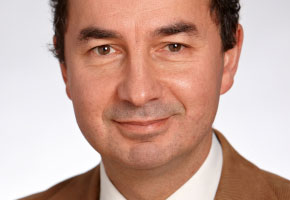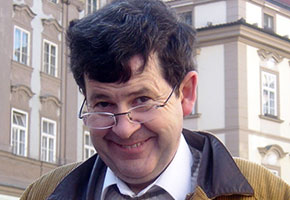Medical schools must demonstrate that they care about their students as people and as the future of the medical profession
Today’s medical students are ground down by examinations, worried about workload, and aware of the inevitability of error. This makes them more alert to the impending challenges of medical practice than their predecessors ever were. Their resilience, mental health, and general wellbeing are tested when their preconceptions about the nature of medicine are challenged by the realities of practice. They risk being burned out without ever having been aflame.
So when the student’s glass is half empty, how can we prevent it being refilled with cynicism and despair? Our solution, which we’ve put into use at our university, is to offer a pedagogical relationship characterised by companionship and conversation.
Nowadays pedagogy refers to theories, principles, and methods of education. However, the term originates from antiquity, when wealthy families would assign a trusted slave to tend to their children. These paidagogos would accompany the child to school, ensuring their safety and providing them with practical and moral guidance. They achieved this through example, explanation, the exercise of discipline, and through conversation.
There are two ways in which we converse with students about learning and practising medicine.
The first is through correspondence. We provide personal responses to each of their written reflections on clinical experiences—six per student throughout their course. We acknowledge their concerns and provide encouragement, reassurance, and guidance. We promote a deeper consideration of the human context of medicine, and demonstrate care for, and solidarity with, them.
By reading and responding to over 3000 written pieces we have come to understand our young colleagues more clearly. We see their frustrations, uncertainties, and developing understandings; their interactions with teachers, clinicians, and patients; their moments of achievement, disappointment, and joy. We have even detected worrying perceptions of negative attitudes towards students and patients by their clinical teachers, and fears that they themselves might eventually become similarly battle hardened and callous.
The second is an educational programme, “Preparation for Clinical Practice” (PCP), which has been developed to address common themes within the reflections and to improve the wellbeing and resilience of our students. The PCP workshops introduce strategies for dealing with clinical uncertainty, risk management and clinical mistakes, and potential GMC investigations. They also cover failure to progress: e.g exam failure, illness (physical and mental), and personal and professional relationship failure.
The atmosphere is light hearted, despite the seriousness of the content, and the workshops are facilitated by clinical teachers, many of whom are also respondents to the written reflections. Importantly, the emphasis is on solutions rather than problems. Also critical to the success of the programme is the participation of the students’ recently qualified predecessors.
Although they are voluntary, with no direct link to any assessment, more than three quarters of the cohort attended the workshops.
This combination of reflection and anticipation is the most time consuming but also the most rewarding of our educational activities. It is divorced from managerial imperatives and doesn’t contribute to competitive ranking by educational performance measures. Yet we hope that our student colleagues value it. Through it we demonstrate that we care about them as people and as those to whom we entrust the future of our profession.
Rather than abandon them to their own devices we must offer to walk with our students, like the pedagogues of old, providing companionship and conversation. We must help them negotiate their environment and prompt them to learn from their thorny experiences. We must help them anticipate future problems and equip them with appropriate responses and solutions.
Above all, we must reassure them that despite the uncertainty and imperfection of clinical practice, its capacity to provide personal fulfillment and achieve societal good remains worthy of their efforts.
 Clive Weston is sub-dean for professional development at Swansea University Medical School. He will be speaking at the International Practitioner Health Summit 2018: The Wounded Healer on 5 October 2018.
Clive Weston is sub-dean for professional development at Swansea University Medical School. He will be speaking at the International Practitioner Health Summit 2018: The Wounded Healer on 5 October 2018.
Competing interests: None declared.
 John Rees is the admission lead at Swansea University Medical School.
John Rees is the admission lead at Swansea University Medical School.
Competing interests: None declared.
The views expressed here are our own and do not represent the official position of Swansea University, though we would be happy were they to do so.
